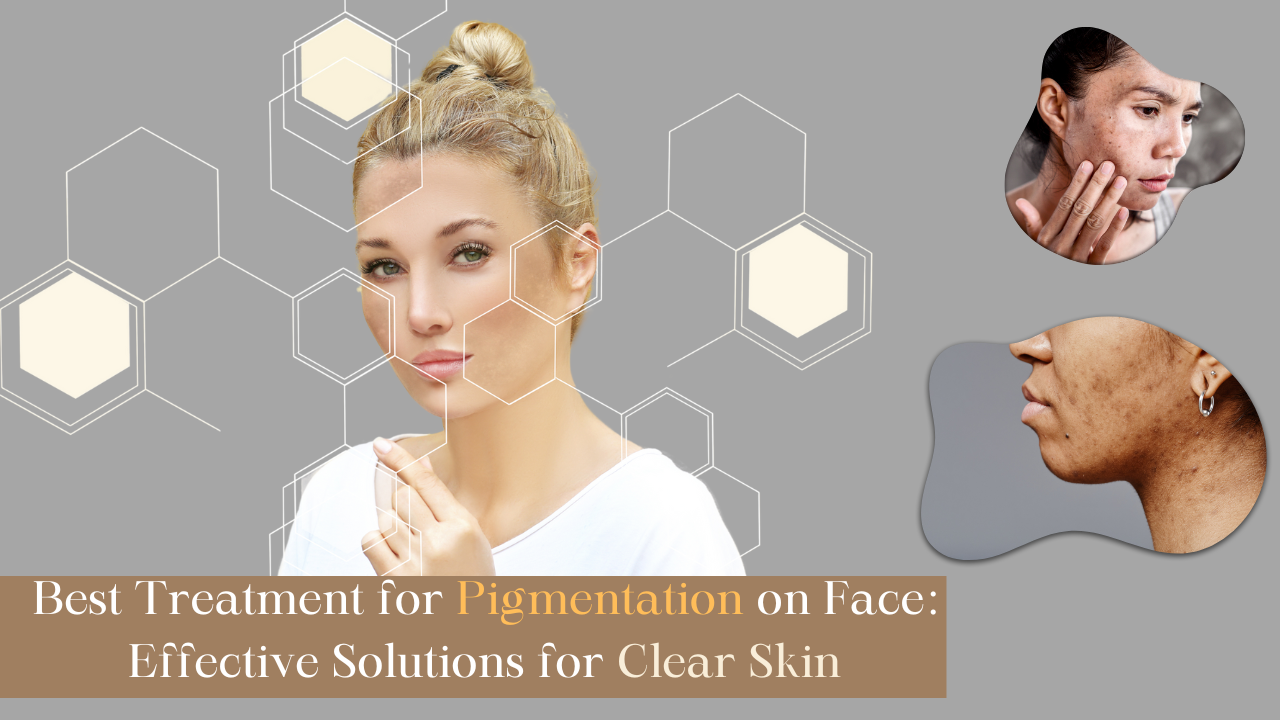
Pigmentation on the face can be a frustrating skin concern, leading to uneven skin tone, dark spots, and patches. Whether caused by sun exposure, hormonal changes, or post-inflammatory hyperpigmentation, finding the right treatment is crucial for achieving clear, radiant skin. In this article, we explore the best treatments for pigmentation on the face, ranging from home remedies to professional solutions.
1. Topical Treatments for Pigmentation
Topical treatments are often the first line of defense against facial pigmentation. These include:
Vitamin C: A powerful antioxidant that helps to brighten skin tone and reduce dark spots by inhibiting melanin production.
Hydroquinone: A dermatologist-recommended skin-lightening agent that reduces the appearance of pigmentation by slowing down melanin production.
Retinoids (Retinol): These Vitamin A derivatives promote cell turnover, helping to fade dark spots and improve overall skin texture.
Niacinamide: Known for its anti-inflammatory and brightening properties, niacinamide can help reduce pigmentation and improve skin barrier function.
Azelaic Acid: An effective treatment for post-inflammatory hyperpigmentation, particularly useful for those with acne-prone skin.
2. Professional Treatments for Stubborn Pigmentation
If topical treatments do not yield desired results, professional procedures can offer more significant improvements:
Chemical Peels: Using acids like glycolic, lactic, or salicylic acid, chemical peels exfoliate the skin, removing the pigmented layers and promoting new cell growth.
Laser Therapy: Advanced laser treatments, such as Q-switched Nd:YAG or fractional lasers, target melanin deposits and break them down for clearer skin.
Microdermabrasion: A minimally invasive procedure that exfoliates the skin to reduce pigmentation and improve texture.
Microneedling: This treatment stimulates collagen production and helps fade pigmentation over time.
IPL (Intense Pulsed Light) Therapy: A non-invasive treatment that targets pigment spots using light energy to break down melanin.
3. Home Remedies for Mild Pigmentation
For those who prefer natural solutions, several home remedies can help lighten mild pigmentation over time:
Lemon Juice: Rich in Vitamin C, lemon juice has natural bleaching properties (use with caution and always dilute it).
Aloe Vera: Known for its soothing and skin-lightening effects.
Turmeric: Contains curcumin, which has anti-inflammatory and brightening properties.
Potato Juice: Loaded with enzymes and Vitamin C to lighten dark spots naturally.
Green Tea Extract: Antioxidants in green tea can help reduce pigmentation and protect against further damage.
4. Lifestyle and Preventive Measures
Preventing further pigmentation is just as important as treating existing dark spots. Consider these preventive measures:
Sunscreen: Always wear a broad-spectrum SPF 30 or higher to protect against UV-induced pigmentation.
Healthy Diet: Incorporate antioxidant-rich foods, such as berries, leafy greens, and nuts, to support skin health.
Hydration: Drink plenty of water to keep your skin hydrated and flush out toxins.
Avoid Picking Skin: Picking at acne or blemishes can worsen pigmentation.





